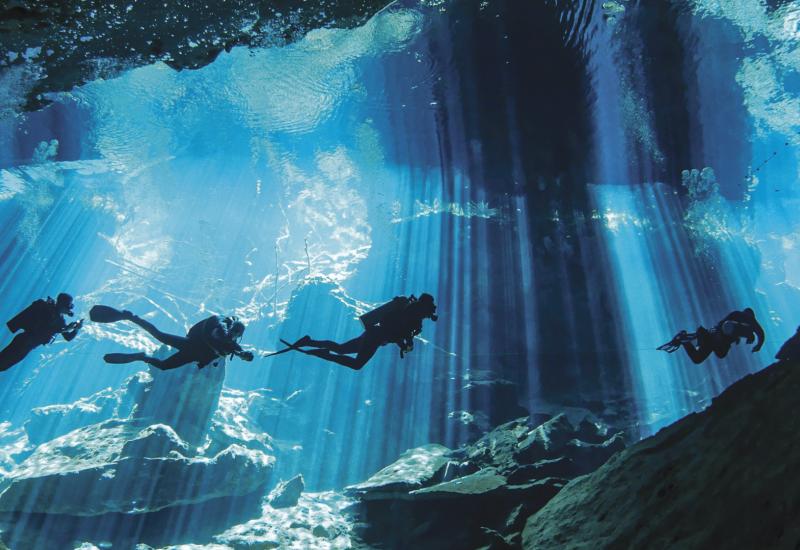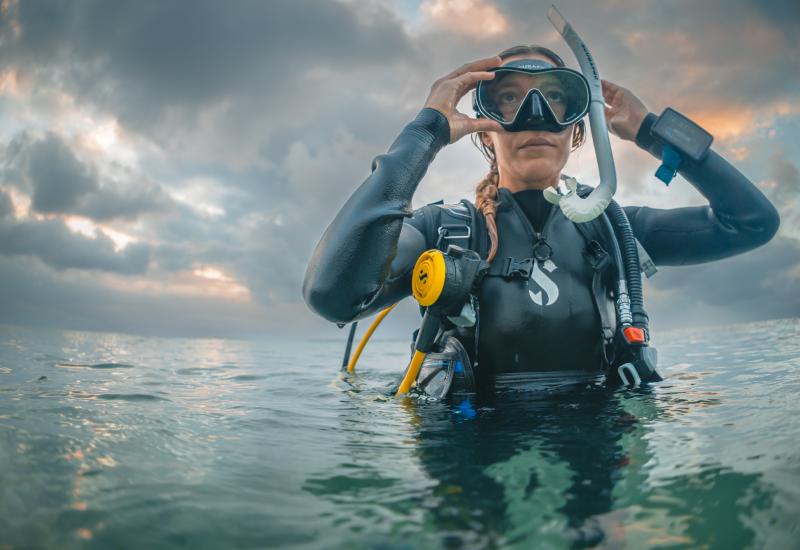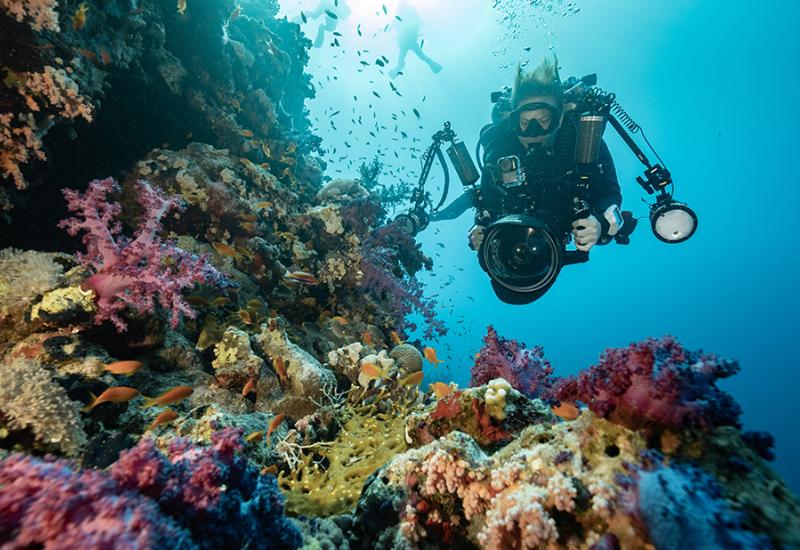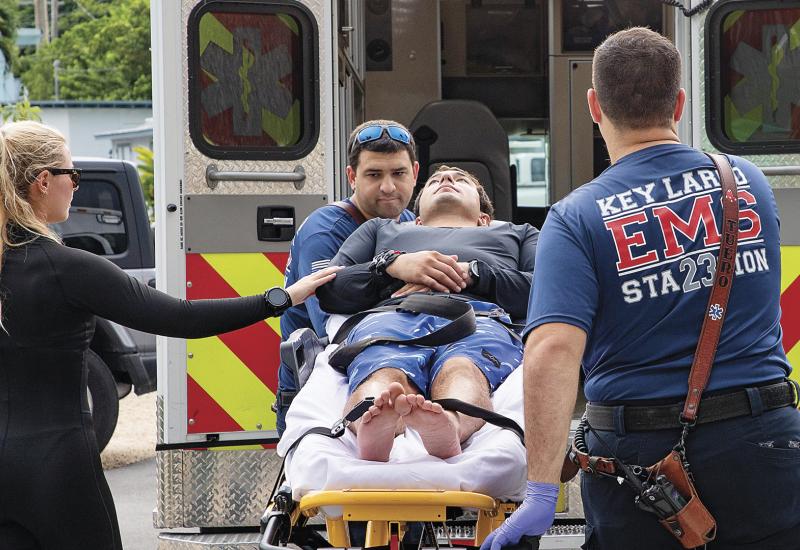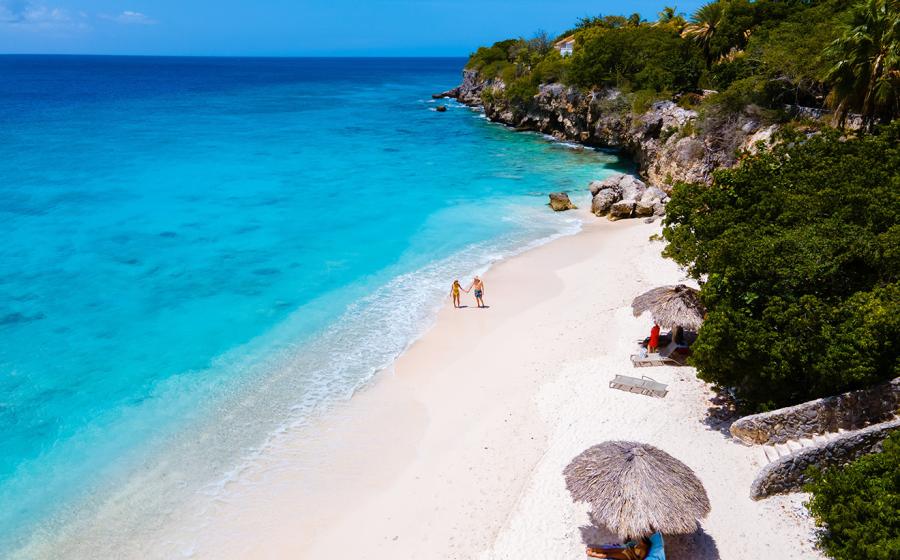Untrained and Unprepared | Lessons for Life

Steven P. Hughes"When Cliff was sure there was no one to see them, he led Andrew into an opening to the cave system and quickly swam inside. They did not secure lines outside the cave system entrance."
After they made their way past the narrow opening in the freshwater spring, the cave system opened up in front of Cliff and Andrew. Cliff had been inside the cave several times, but it was the first time for Andrew. He was a little nervous, but excited about what he was seeing. They had lied to get where they were, but Andrew was happy they did. And he wanted to do it again. He made a promise to himself that he was going to return later with double tanks—the same as Cliff was carrying—so they could explore even deeper.
The Divers
Cliff and Andrew were good friends and frequent dive buddies. They met at their local dive shop and hit it off. Andrew was a 52-year-old male, a certified and experienced advanced open water diver. He was not a cave diver.
Cliff was a 42-year-old male and an experienced dive instructor. Cliff had trained Andrew in several specialty certifications, but he was neither a cave diver nor a cave diving instructor.
The Dive
Conditions were good at the freshwater spring system where Cliff and Andrew planned to dive. It hadn’t rained much lately, so the water was clear, and the flow out of the springs was minimal. They watched several teams of certified cave divers gear up and make their way into the system before they donned their own dive gear and headed for the water. The dive location had strict rules about diving. If you didn’t hold a cave diving certification, or weren’t training with a certified cave diving instructor, you were not allowed to enter the caves and you were not allowed to bring a dive light into the facility with you. You were only allowed to use the lake area outside of the spring for open water dives.
Cliff and Andrew signed forms agreeing that they would only dive as open-water divers, even though they had lights hidden in their gear bags and did plan to dive inside the caves. They had both been to the dive park several times, and Cliff was well-known to the staff as an instructor, so no one checked their gear to make sure they were telling the truth. Cliff and Andrew knew exactly what they were doing.
When it came time to get in the water, they did their best not to be noticed. Cliff led Andrew into the water as if they were planning to make a training dive in the open areas. When Cliff was sure there was no one to see them, he led Andrew to an opening to the cave system and quickly swam inside. They did not secure lines outside the cave system entrance.
The Accident
There is no way to know exactly what happened to Cliff and Andrew inside the cave system. Neither man made it out alive to explain. Nearing the end of the day, staff at the facility realized Cliff and Andrew’s empty gear bags were still in a grassy area on a tarp where they had left them. The staff initiated a search of the open-water areas and asked every diver who was still around if they had seen the two men. No one had.
The next day, a recovery team found their bodies 120 feet inside the cave. They were in a small offshoot of the main system.
Andrew was out of air and had drowned. Cliff was wearing twin tanks. An examination of his gear found the manifold between the cylinders closed, which indicated there was either no predive check or it was not conducted properly. One tank was empty, but the other was full. All Cliff would have had to do was open the valve or switch to his other regulator, which was supplied by the full tank.
The two men were found next to a permanent guide line in the cave, but there was no directional attachment to the line that would have shown the divers which way they needed to swim to reach the exit. They were lost and could not guess which direction led back to the entrance and safety.
Analysis
Diving can be an exclusive club—we get to see places and things the average person can only see on television. Cave diving leads to beautiful places that are even more exclusive than the typical dive site. Only a small percentage of divers will ever visit underwater cave systems. But without the proper training, experience and equipment, cave diving can be exceedingly dangerous and even deadly.
It doesn’t happen often—mainly because of the security precautions put in place due to fatalities—but occasionally untrained divers will decide to enter cave systems for a look around and end up getting in trouble.
Imagine being lost inside a cave system, not having any idea how to get back outside into open water, and watching your air supply slowly drop to zero. That’s what happened to Cliff and Andrew.
Their last minutes were likely filled with panic, fear and regret. One probably ran out of air first, leaving his buddy behind. One man had to watch his friend and dive buddy lose consciousness, knowing that would happen to him next. The overriding tragedy of this incident is that two people died because they knowingly and willfully disregarded well-established safety practices and dived well beyond what they were trained for.
Just as the basic rules for diving are there to keep you safe, there are rules for cave diving. They begin with additional training that includes how to run a line inside a cave, how many lights you should carry and special rules for how much breathing gas you carry and when you should turn and head back to the surface. Many cave diving sites allow recreational divers to use areas outside of the cave as an open-water destination, especially for training. But to do so, you have to agree that you won’t venture inside the caves. You aren’t allowed to bring dive lights with you, to further discourage you from entering the cave system.
As the Grim Reaper sign posted at the entrance to many caves says, “Prevent Your Death: Go No Farther. There’s nothing in this cave worth dying for.”
In Cliff and Andrew’s case, they ignored all that and paid the ultimate price. They literally watched their lives end as their gauges dropped to zero.
Don’t follow in their fin kicks.
Lessons for Life
- Don’t dive beyond your training. This is true in any environment, but doubly so in overhead environments like caves, shipwrecks or any other place you can’t make a direct ascent to the surface safely.
- The rules of cave diving have been learned at the cost of people’s lives. Don't ignore or disregard them.
- Don’t be overconfident. Extensive open water experience—even being an instructor—does not make you an expert in overhead environments, especially caves.

